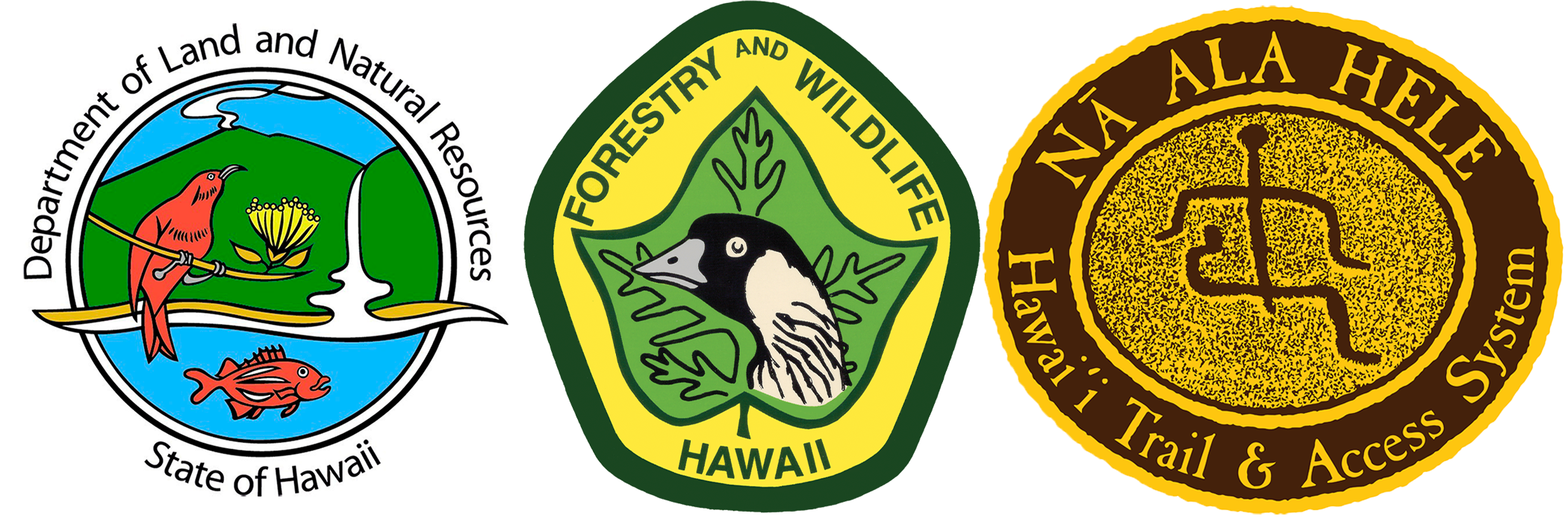This refuge was established to protect endangered and threatened waterbirds, including the koloa (Hawaiian duck), ‘alae ke‘oke‘o (Hawaiian coot), ‘alae ‘ula (Hawaiian moorhen), ae‘o (Hawaiian stilt) and nēnē (Hawaiian goose). In addition, these wetlands host a number of vagrant and migratory waterbirds. To ensure the continued protection of the birds that live in Hanalei NWR, ...
Read More Hanalei National Wildlife Refuge
Archives by Month:
Home to colonies of thousands of migratory and resident seabirds, this coastal refuge is a premier location for observing a diverse array of species, including both white and red-tailed tropicbirds, Laysan albatross, red-footed boobies, wedge-tailed shearwaters, and more. The historic lighthouse and plunging sea cliffs provide dramatic and awe-inspiring views as you look seaward toward ...
Read More Kīlauea Point National Wildlife Refuge
Located within the Līhu‘e-Kōloa Forest Reserve, this 4 mile out-and-back hike provides scenic vistas as you walk among tree ferns and towering eucalyptus. This trail offers the opportunity to see the native ʻapapane, along with a number of introduced species, like the greater necklaced laughingthrush, western meadowlark, and white-rumped shama. Kuilau Trail ends at a ...
Read More Kuilau Trail
Extending between ‘Shipwrecks’ Beach and Māhā’ulepū Beach, the Māhā’ulepū Heritage Trail has much to offer. With fascinating archaeological features, unique natural history, scenic coastal views, and wildlife all on display throughout the trail, this hike is sure to captivate.
Salt Pond Beach Park offers a calm bay, protected by a stretch of reef which serves as a natural breakwater. Allowing a view into the adjacent salt ponds in addition to the ocean views, this site provides opportunity to observe sea birds and wetland birds. Between the months of December and April, this beach is ...
Read More Salt Pond Beach Park
Formerly a sand and gravel mining site, Kawaiʻele Waterbird Sanctuary is a manmade wetland, created and preserved to provide a healthy habitat for endangered Hawaiian waterbirds. This site is home to native species ʻalae ʻula, ʻalae keʻokeʻo, aeʻo, and ʻaukuʻu and is regularly visited by nēnē.
Beginning at the awe-inspiring Puʻu O Kila Lookout, the Pihea Trail offers scenic forest views and some of the best opportunities for viewing Kauaʻi’s native forest birds. This trail is considered to be a difficult hike.
This short walk along an asphalt path between H-3 and a series of protected ponds offers sightings of native wetland species and, during winter months, some less common migratory species.
A moderate challenge, this 4.8 mile forested loop hike begins and ends in the Keaīwa Heiau State Recreation Area. The ʻAiea ridgeline offers some of Oʻahu’s best opportunities for spotting native forest birds such as the Oʻahu ʻamakihi, Oʻahu ʻelepaio, and ʻapapane as well as some exciting introduced species, including the endangered Mariana swiftlet and ...
Read More ʻAiea Loop Trail
Named in memory of McKinley High School teacher and environmental activist Betty Bliss, this special viewing point provides a look into the Pearl Harbor National Wildlife Refuge- an area dedicated to the protection and management of endangered waterbirds and endangered plants. Accessible year-round by walking or biking along the Leeward Bikeway (also known as the ...
Read More Betty Bliss Memorial Overlook
This urban park provides an easily accessible opportunity to view Honolulu’s many indigenous and introduced birds. This is a popular spot to see Manu-o-Kū (white tern) and rose-ringed parakeets.
The trail begins as a paved road, eventually turning into a dirt track and transitioning from guava to native koa-ʻuluhe forest. This hike offers opportunity to see or hear several native forest birds. A challenging trek, this ridge trail features 1,600-ft. elevation gain and may often be muddy and slippery.
This protected lagoon provides habitat for a variety of native and endangered waterbirds. The adjacent Kuliʻouʻou Beach Park is a family-friendly viewing point for the lagoon. The calm waters of the lagoon offer a peaceful backdrop for birds and parkgoers alike.
This scenic, paved hike presents breathtaking views of expansive coastline, including Koko Head and Koko Crater, as well as views of the iconic red-roofed Makapuʻu lighthouse. Be sure to bring your binoculars to spot passing seabirds and humpback whales (humpback whale season runs from November through May).
Encompassing 830 acres of land, Kawainui Marsh is the largest remaining wetland in Hawaiʻi today. Once an important place for fishing, kalo farming, and cultural practice, Kawainui Marsh is now being restored to create suitable waterbird habitat for endangered aeʻo (Hawaiian stilt), ʻalae ʻula (Hawaiian gallinule), and ʻalae keʻokeʻo (Hawaiian coot).
